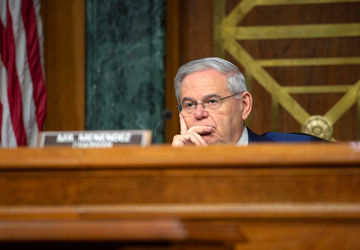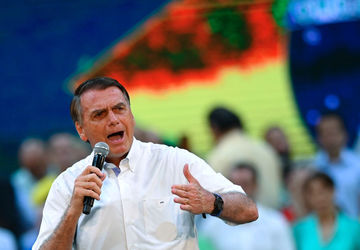Mikael Wolfe

I am a historian of modern Latin America focusing on the intersection of social, political, environmental, and technological change. In my scholarship and teaching, I employ interdisciplinary historical methods to explore questions of water control, agrarian reform, and the effects of climate and weather on the process of social revolution.
I teach undergraduate and graduate courses in modern Latin American history, historiography and film, history of US-Latin American relations, comparative history of modern Latin America and East Asia, environmental history of Latin America and the United States, climate ethics, and water history (see current and past course offerings in sidebar to the right). I am accepting graduate students for fall 2023, but before contacting me, please become familiar with my work. Specific questions engaging with my work and how it relates to your own research interests are more fruitful as a basis for conversation than generally asking to learn more about my work.
My first book, Watering the Revolution: An Environmental and Technological History of Agrarian Reform in Mexico (Duke, 2017; winner, 2018 Elinor K. Melville Prize for Latin American Environmental History; short-listed, 2018 María Elena Martínez Prize for Mexican History), investigates how people managed their water—via dams, canals, and groundwater pumps—in a great crucible of the Mexican Revolution of 1910-20, the arid north-central Laguna region. In so doing, it demonstrates how Mexican federal engineers were not merely passive implementers of large-scale state development schemes such as agrarian reform. Instead, to implement the latter, they actively mediated knowledge between state and society, identifying what they thought was technologically possible and predicting its environmental consequences.
The book also explains how engineers encountered an intrinsic tension between farmers’ insatiable demand for water and the urgency to conserve it. By closely examining how the Mexican state watered one of the world’s most extensive agrarian reforms, the book tackles an urgent question in the literature on postrevolutionary Mexican state formation, Latin American environmental history and history of technology, and global development studies: how and why do governments persistently deploy invasive technologies for development even when they know those technologies are ecologically unsustainable?
To answer this global question, my book integrates environmental and technological history along with social, economic, political, and legal analyses based on extensive research in archival sources, journals, newspapers, and government publications in Mexico and the United States. Using this “envirotechnical” analytical framework, the book uncovers the varied motivations behind the Mexican government’s decision to use invasive and damaging technologies despite knowing they were unsustainable. My book thereby transforms our understanding of human-nature interactions, water policy, and agricultural development in Latin America. As such, it has been reviewed by nearly 30 US and international journals of history, technology studies, agricultural and environmental sciences, and water management.
My research on agrarian reform and water management in north central Mexico led me to investigate how weather shapes the process of social revolution across Mexico's and Cuba’s varied climates and environments. In the first of a two-part book project, Rebellious Climates: How Weather and Geography Shaped the Cuban Revolution, I combine environmental history and historical climatology to argue that extreme weather events such as drought and hurricanes were not merely infrequent external shocks to Cuba, quickly entering and exiting the main anthropocentric stage of its theater of revolution. Instead, these events, along with a diverse geography forged by an archipelago, were long enmeshed in Cuban politics, economics, society, and culture, and thereby shaped the origins and progression of the 1959 revolution in ways largely overlooked by historians.
Specifically, the extremely variable climate of the rugged Sierra Maestra mountains simultaneously protected Fidel Castro’s guerrillas from Batista’s army and became a second ‘enemy’ due to the environmental hardship the barbudos (a machista moniker for the guerrillas meaning bearded ones) endured. After 1959, this barbudo experience informed the way the new revolutionary Cuban state weathered the severe effects of the 1961-2 drought and Hurricane Flora in October 1963. As much as the Bay of Pigs invasion of 1961 and the Cuban Missile Crisis of 1963, I argue that these weather events shaped Cuba's developmental path that culminated in the 10 million-ton sugar harvest campaign of 1970 and escalated into a war of words between Cuba and the United States that was intertwined with the larger geopolitical conflict over the Cuban Revolution.
The two books together constitute new ways of analyzing how the real as well as perceived effects of weather events and geography influenced a variety of historical actors’ motivations to join, resist, or stay out of revolutionary movements in Latin America. They also explore how revolutionaries used their experience literally and figuratively weathering environmental hardships during their armed struggles to craft narratives legitimizing their rule as well as revolutionary environmental policy once in power. In so doing, the books expand our historical understanding of how climate and geography become geopoliticized, and sometimes weaponized, during times of conflict.
My third book project analyzes how nature was genderized in Latin American history, literature and material culture during the twentieth century. The book, tentatively titled Gendering Nature and Technology in Modern Latin America, uses a historical and ethnographic approach to explore how Latin American elite and popular classes socioculturally perceived and represented nature and technology as either male or female, and often in racialized ways. It then examines how this gendering shaped Latin American development and national identity formation.
Books
Featured News
Contact
On leave 2022-23
Courses taught in the past:
• Doing Environmental History: Water Justice
• Film and History of Latin American [Counter]Revolutions
• Historical Ecology of Latin America
• Comparative Historical Development of Latin America and East Asia
• The Ethical Challenges of the Climate Catastrophe
• Exploring Latin American History and Historiography












